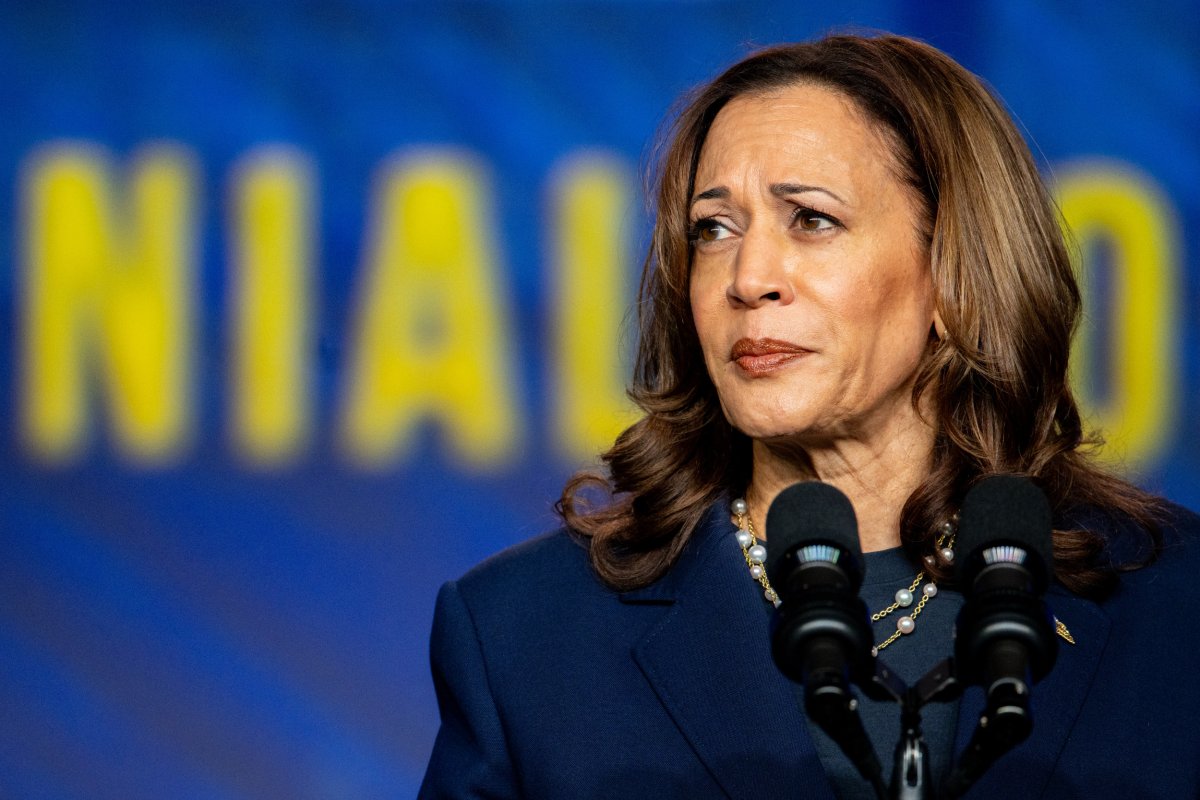July 2024, arguably, was the most transfixing month of American presidential politics in over half a century.
The first televised presidential assassination attempt in more than 40 years. The stark image of Trump’s bloodied ear and forcefully raised fist. A spectacular, Democrat-led pressure campaign from all corners that enabled the swift conclusion of the incumbent campaign. Yet, amid the theatrical cascade of President Joe Biden and former President Donald Trump‘s sparring, July 2024 marked another, more feminine spectacle: the first Black woman to be a presumptive presidential nominee.
Yet, as a Black woman and political organizer, I remained skeptical at how Vice President Kamala Harris‘ candidacy would be received by the majority of Americans. Without a doubt, I felt that she would fare better than Biden with voters. But would people truly rally around her? Would there be genuine excitement?

Brandon Bell/Getty Images
My skepticism was not unfounded. In local races where I served as a lead organizer, I witnessed how white voters and candidates had directed racially charged attack messages at people of color running for office. Even in New York City, famously known for its richly blue districts, racist attacks remain a sharp, persistent weapon.
While I volunteered for Rep. Jamaal Bowman (D-NY) earlier this year, chatter over challenger George Latimer’s racially charged crusade against Bowman ran rampant. On the daily, Latimer’s campaign ran ads that depicted Bowman with his skin artificially darkened with the intention of making him seem less trustworthy to voters—a tactic rooted in anti-Black stereotypes. Last fall, I watched how the right heavily targeted Harvard’s first Black woman president, Claudine Gay. That was my introduction to my college environment.
For women and people of color, public rejection of our leadership is a dismal reality.
I had heard persistent murmurs for the past few weeks that Biden was submitting to party concerns over his candidacy—from within my workplace, from fellow organizers, and through the tailored tweets of my reporting intern schoolmates. When Biden concluded his campaign, I was not surprised, but I was, and still am somewhat mistrustful of America’s attitude toward championing a woman of color as commander-in-chief.
On July 21, I was surprised. People seemed to genuinely and enthusiastically rally around Harris.
In the 24 hours following her candidacy announcement, ActBlue witnessed its highest fundraising day this cycle. That same night, a zoom call was held with over 40,000 attendees—mostly Black women—to prepare to mobilize to secure Harris’ victory in November. The next day, 53,000 Black men rallied again on zoom for the same objective: to get Harris elected.
Harris, notably, also possesses a more progressive record in comparison to Biden when it comes to key issues young voters care about. As a climate organizer, I was thrilled to see that she initially had carbon pricing as a part of her 2020 platform—a foundational aspect of any effective climate legislation. She also spearheaded national acceptance for the legalization of same-sex marriage. Here, she actively advocated for the freedoms of myself as a queer person, and for many others I know.
I cannot not help but at least feel somewhat more optimistic now. Harris is polling considerably better than Biden, and that makes preventing a second Trump presidency feasible after all. But most importantly, we now have regained the attention of a crucial group to get Harris over the finish line—marginalized voters.
To be clear, Harris will not dispel all of America’s wrongs. No presidential candidate will ever do so. Her role in enabling the ongoing atrocities in Gaza should continue to be scrutinized and rightfully so. Future generations of marginalized voters must lead with more conviction, and greater morality, than Harris has on this front.
But at a bare minimum, seeing someone who has been marginalized ascend to such a position of visible leadership, will encourage more minorities to mobilize and engage as a part of the broader political process going forward.
Harris’ nomination is only a beginning, and nothing more.
Jasmine Wynn is a political and climate organizer from New York City. She is currently a sophomore at Harvard College.
The views expressed in this article are the writer’s own.

Post a Comment